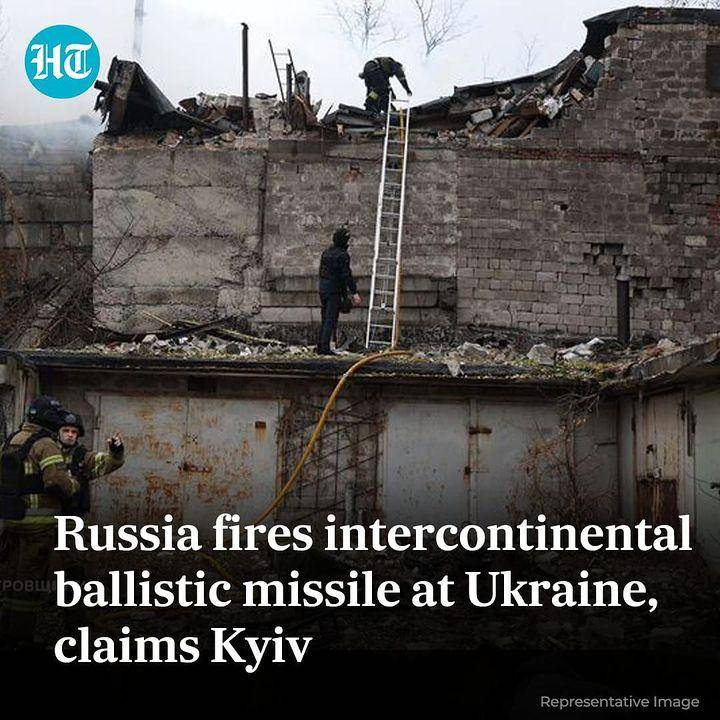Russia-Ukraine War Update: Intercontinental Missile Launch and Ongoing Conflicts.
The 🇷🇺Russian Federation first struck 🇺🇦Ukraine with an intercontinental ballistic missile RS-26 "Rubezh", - sources of the Ukrainian media Ukrainska Pravda.
The ongoing conflict between Russia and Ukraine continues to dominate global headlines. In a recent escalation, Kyiv reports that Moscow has launched an intercontinental ballistic missile targeting the central-eastern city of Dnipro. The Ukrainian Air Force has confirmed the attack but did not provide specific details on the outcome or damage caused by the missile strike. This development adds to the ever-growing list of confrontations that have characterized this prolonged conflict, keeping the world on edge.
Ukraine's Air Defense Achievements
Despite the intensity of the attack, Ukraine’s air defenses managed to intercept and neutralize a significant portion of the threat. The Ukrainian Air Force announced that they successfully shot down six Kh-101 cruise missiles during the assault, highlighting the country's ongoing efforts to protect its airspace. The Kh-101 cruise missiles are known for their precision and ability to carry substantial payloads, making their interception a notable achievement for Ukraine's defense forces. This defense capability plays a crucial role in maintaining resilience amidst growing aggression.
Russia's Gains in Donetsk Region.
Amidst these air strikes, Russia's Defense Ministry claims that its forces have successfully captured Dalnje, a village in Ukraine's Donetsk region. This development marks another territorial gain for Russia in an area that has been fiercely contested since the beginning of the war. Donetsk, a region with strategic significance due to its industrial base and proximity to Russia, remains a focal point of the ongoing conflict. The capture of Dalnje underlines the shifting dynamics on the ground, where both sides continue to vie for control.
Russia’s Stance on Peace Negotiations
While the military confrontations persist, there are also diplomatic undertones to the conflict. The Russian Foreign Ministry recently stated that Moscow is open to considering any "realistic" peace initiative. However, any proposal must align with Russia’s interests and take into account the realities on the battlefield. This position reflects Russia’s cautious approach to diplomatic solutions, emphasizing its strategic priorities and control over disputed territories. Whether this will pave the way for future negotiations remains uncertain, given the current stalemate and conflicting interests.
The Global Impact and What’s Next.
The Russia-Ukraine conflict continues to have a profound impact, not just on Eastern Europe but on the global stage. Energy markets, food supply chains, and international diplomacy are all being reshaped as the war unfolds. Observers around the world are closely watching the situation, as any major change could influence global stability.



No comments yet
Be the first to share your thoughts!